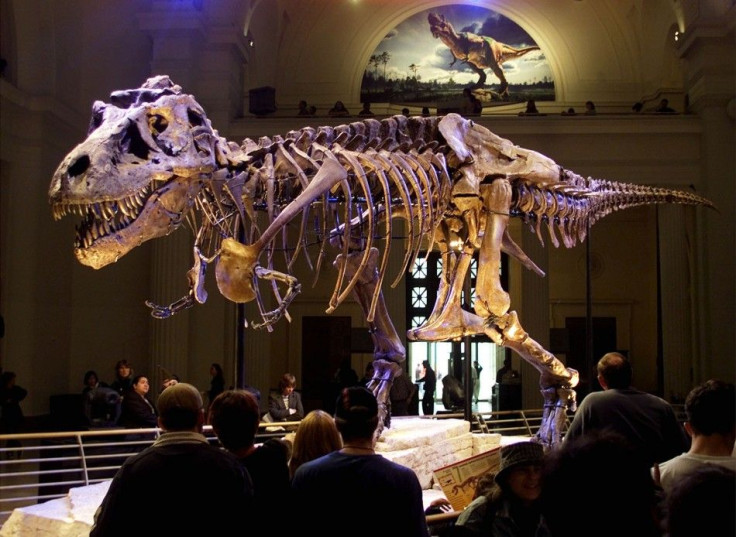Dinosaur Extinction Might Be Due To Volcanic Eruptions, Not Asteroid’s Impact

The discovery of a wide crater off the coast of Mexico marked several years of belief that an asteroid killed the dinosaurs and most of terrestrial life. Based on the "impact theory", an asteroid which was more than five miles wide hit the Earth at 70,000 miles per hour sixty-six million years ago. The asteroid instantly vaporised upon impact which caused heavy dust that blocked out the sun. That set-off a cataclysmic chain of events which in turn killed more than three-quarters of the Earth's species.
However, another theory challenges the old belief based on new evidences found. A series of ongoing volcanic eruptions could have played a major role in the extinction of dinosaurs and other species. According to Blair Schoene, a Princeton geologist, the eruptions began 250,000 years before dinosaurs' extinction and have lasted for 750,000 years.
Schoene and his team do not claim that volcanoes are the only reason why dinosaurs got wiped-out. But they believe that the eruptions have caused changes in the climate, which placed the ecosystem under stress. Volcanoes emit carbon dioxide that might have caused an intense global warming, but at the same time, volcanoes emit sulfur dioxide as well, which might have caused global cooling. The team also confirmed that earlier mass extinctions were indeed caused by volcanic eruptions alone, Time reports.
Contradictory to Schoene's theory, several paleontologists are in doubt of such belief. The link between volcanic eruptions and the death of several species might be invalid. According to Brian Huber of the Smithsonian Institution, the arguments between the theory of impact and theory of volcanic eruptions have lead scientists to consider very carefully the fossil evidences both on land and under the sea.
In addition, Prof. Dave Archibald of San Diego State University said that the survival of frogs and other creatures contradicts the idea that the dinosaurs were killed due to acid rain, which was as deadly as battery acid. Archibald also does not believe in the theory of "impact winter" due to the massive asteroid that hit the planet. Meanwhile, Dr. Norman Macleod of the National History Museum in London is also convinced that the dinosaurs were already on the verge of extinction due to climate change and was not due to the impact of the asteroid, BBC reports.




















